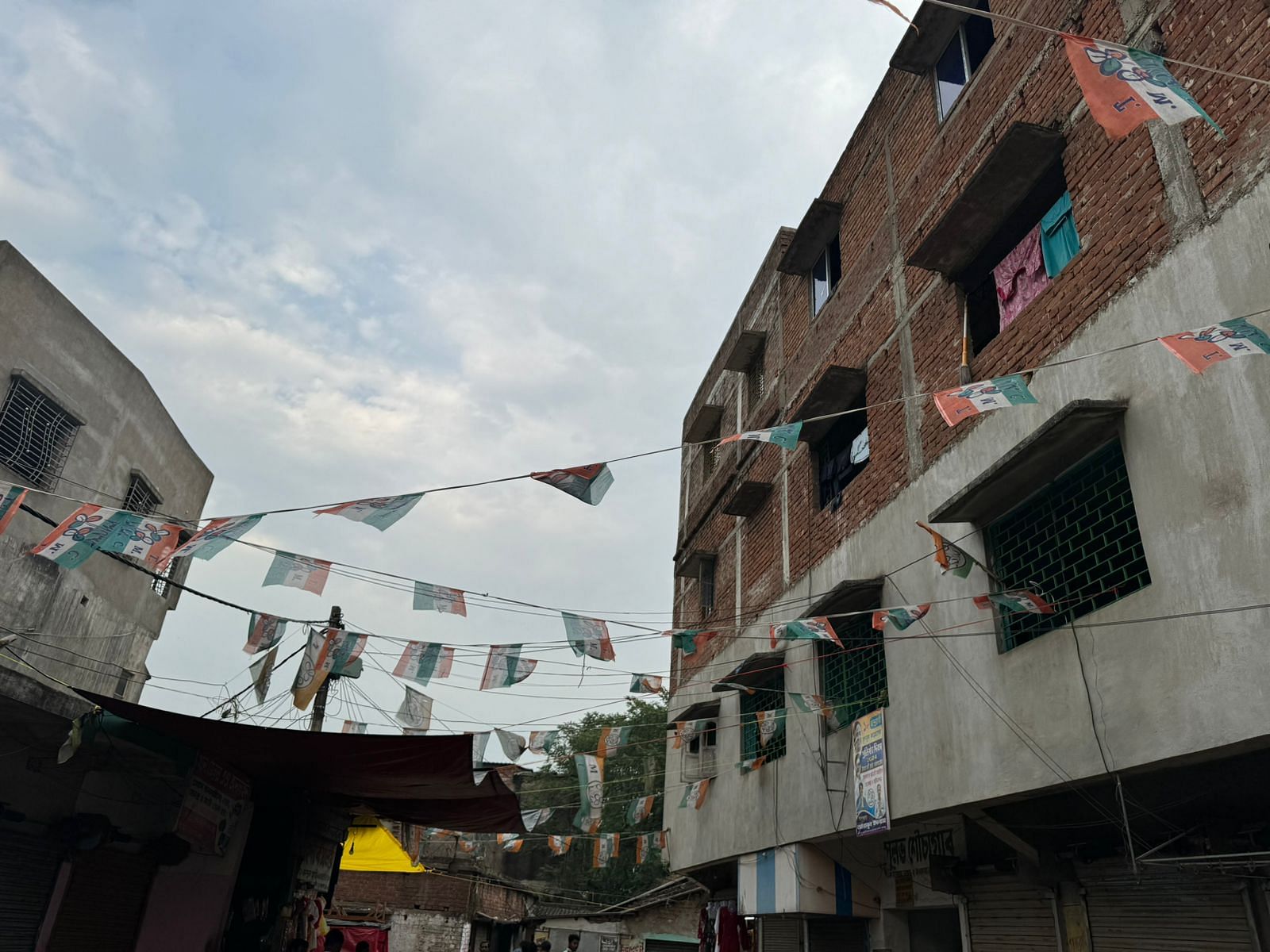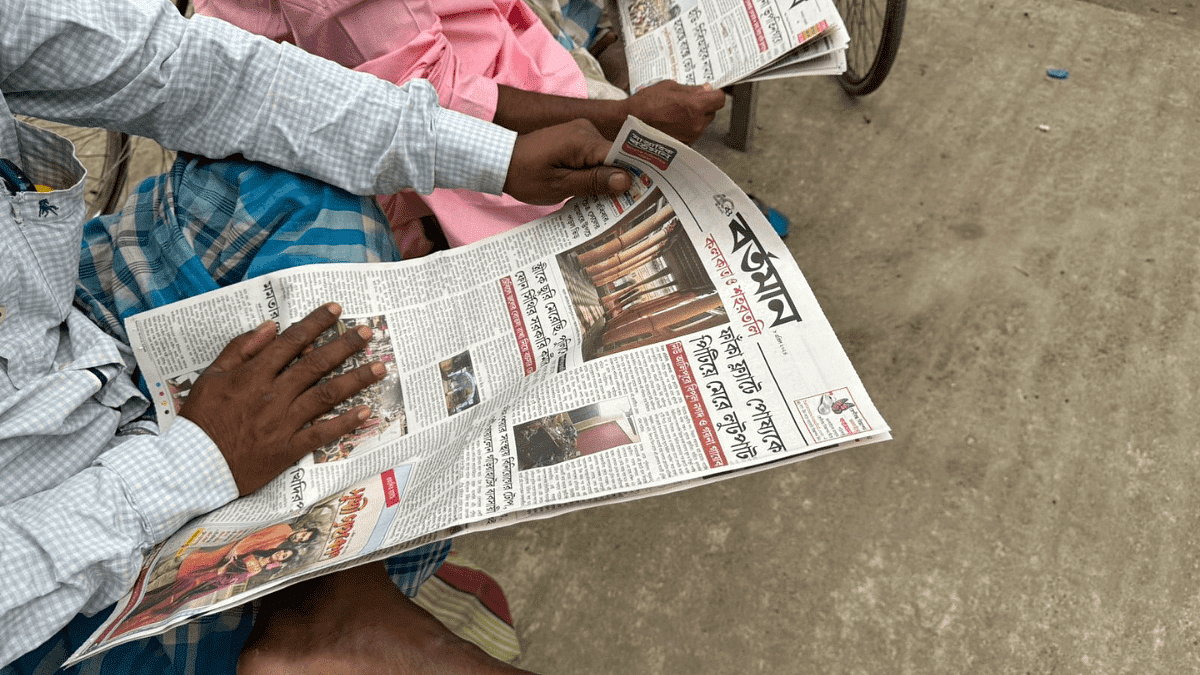Some understand instantly what he means. For those who don’t, Qasmi tells them, “Vote for the Trinamool Congress (TMC). Who else is there to vote for?”
With elections for West Bengal’s 42 parliamentary seats set to be held in seven phases from 19 April to 1 June, like Qasmi, imams across the state are rallying behind Chief Minister Mamata Banerjee’s TMC. Many see TMC as the bulwark against the Bharatiya Janata Party (BJP) and its Hindutva politics.
“It’s important for Muslims to realise the value of their votes. For this reason, we’re urging our community to band together behind a secular party that can safeguard their future. And in our eyes, TMC is that party,” says Mohammad Yahya, head of the Bengal Imam Association — a body of clerics that counts 22,000 imams among its members.
According to the 2011 Census, Muslims account for 27 percent of West Bengal’s population — the largest minority in the state. Since it first swept to power in the state in 2011, the TMC has counted this large electorate among its core voters.
To garner votes for the party, Muslim clerics are planning to hold a central committee meeting after Eid to devise “effective ways” for voter outreach. This meeting will have seven imams from major mosques across the state in attendance.
“The idea is to reach a consensus on which party is beneficial for the community. After the meeting, its minutes will be sent to the district imam bodies across the state and meetings will be held in each district on how the community should vote this time around,” says Yahya.
Abdul Matin, who teaches political science at Jadavpur University, calls it TMC’s “imam politics”.
The state government had in August 2023 increased the imambhata (honorarium) for imams and muezzins — people tasked with calling Muslims to prayer — by Rs 500, bringing their payment to Rs 3,000 and Rs 1,500, respectively.
According to Matin, through such policies, the TMC has been able to create a “well-structured” network of Muslim clerics to engage rural Muslims.
“These imams have a certain command among the masses, especially among rural Bengali poor, who are influenced by their speeches. So, through the Waqf Board, speeches, and programmes such as Quran recitation, the TMC is reaching out to the Muslims,” he tells ThePrint.
Matin compares the relationship between the TMC and the state’s imams to a “patron-client relationship”.
Imams, he says, frequently participate in TMC’s programmes — from the all-faith rally organised at the same time as the Ram Temple consecration in January to its iftar parties.
“The TMC knows how to capture the imagination of Muslims,” he says. “This way, the party can keep the imams happy without engaging with real issues such as social justice.”
On its part, TMC claims that minorities feel safe with it. “That’s why they want to vote for us. Our party has never differentiated based on religion or caste,” says TMC leader and West Bengal’s Finance Minister Chandrima Bhattacharya.
Also Read: From ‘party society’ to ‘bahubali’ society — how Bengal changed, yet remained same from Left to TMC rule
‘Voting for TMC a compulsion for Muslims’
In 2019, the TMC won 22 seats of the state’s 42 parliamentary seats — 12 down from the 34 seats it won in 2014. On the other hand, the BJP made significant gains, scoring 18 seats, up from two in 2014.
Meanwhile, the Congress won two seats, and the Communist Party of India (Marxist) got none.
Among the two major seats that the BJP managed to secure were Maldaha North and Raiganj, both of which have an estimated Muslim population of nearly 50 percent.
For many Muslims, the shrinking space for them in the political and social discourse is a matter of grave concern. Qasmi explains the Muslims’ predicament in Bengal thus: “Muslims are in the middle, encircled by different trenches. Whichever direction they move, they will fall. The idea is to identify the least perilous path.”
Qasmi’s advice to vote for TMC has stuck with Muslim voters in Kolkata’s Raj Bazar and Kidderpore. They all cite one major reason for picking the TMC — Mamata Banerjee’s pushback against the BJP. “It’s only Mamata didi for us,” 36-year-old Abdul Gaffar says.
“Have you seen any CM file a complaint against the NIA (National Investigation Agency)? She is the only one who can take on BJP single-handedly.”
He’s referring to the West Bengal Police’s FIR against NIA officers for allegedly molesting the wife of arrested TMC leader Monobrata Jana earlier this month during an investigation into a 2022 blast case.
Matin believes that given the current political climate, voting for TMC is a “compulsion for Muslims”.
“Creation of a secular-communal binary has benefitted both TMC and BJP. The clergy and middle-class Muslims have a role to play in this. The idea is that one should choose between the greater and lesser evil, and a large section of clergy is doing that for TMC.”
Divided loyalties
Residents of the Muslim-dominated Bhangar in South 24 Parganas are torn this election.
This assembly seat comes under the Jadavpur parliamentary constituency, which the TMC has retained since 2009.
For Bhangar’s Muslim residents, their loyalties are about to be tested. In one corner stands the Indian Secular Front (ISF), whose chairman Mohammad Naushad Siddiqui, scored the party’s sole assembly seat in 2021.

Siddiqui is a pirzada (custodian) of the mazar (shrine) at Furfura Sharif in Hooghly — considered the most revered mazar in the country after Ajmer Sharif. His party has fielded Noor Alam Khan this election.
In the other corner, is the TMC, whose candidate is a non-Muslim — film and TV actor Sayoni Ghosh.
For residents, the decision is a difficult one. But Mohammad Abdul Halim Mullah, the maulana of the local mosque, believes there’s only one choice.
“I can’t force people to vote for TMC. I can just make a passionate appeal. But they (people) need to understand that while Siddiqui is a Muslim and a pirzada, his single seat can’t secure the future of Muslims. Since he has become an MLA, no work has been done in Bhangar. He has not been able to fulfill his promises,” he says.
However, 25-year-old Mohammad disagrees. Siddiqui, he believes, won’t be able to get any work done so long as the TMC and its bahubalis (strongmen) are in power.
“They will crush him. They won’t allow him to work and that’s what happening,” he says.
Then there are those who accuse the MLA of being an “agent” of the BJP. Noor Islam, who owns a shop, believes Siddiqui intends to eat into Muslim votes and ultimately secure the BJP’s victory.
“How else does he have central force security? Why is the Centre providing him with such security? Muslims are not fools to fall for anyone. This time Bhangar will vote for the TMC,” Islam says.
The Bhangar MLA was provided central security last year after he approached the Calcutta High Court claiming a threat to his life.
Mohammad Yahya echoes Noor Islam’s sentiments, calling ISF a “farce”. The party, he says, doesn’t have much presence in Bengal. “Even if they go solo, they will only cut into votes the way Owaisi (All India Majlis-e-Ittehadul Muslimeen chief Asaduddin Owaisi) does.”
Like Professor Matin, the cleric also believes that for Muslims, voting for the TMC is a direct result of the “lack of credible choices”.
“We have seen how Muslims are being treated in BJP-ruled states and we cannot let that happen in West Bengal. Muslims no longer align with the CPI (M)’s politics after the horror of 34 years (of their rule). The Congress has no structure in the state. So we are only left with TMC,” Yahya said.
TMC and Muslim votes
Since 2019, the BJP has been making significant inroads into the state. With the party leveraging the construction of the Ram temple in Ayodhya to secure the Hindu votes this time around, Muslim votes have become even more crucial to the TMC.
On its part, the TMC has been making considerable efforts to retain this vote bank. For instance, after it lost Sagardighi, an assembly seat with a significant Muslim population, to the Congress-Left combine, Chief Minister Mamata Banerjee took charge of the state’s minority affairs and madrasa education departments.
In May 2023, the Congress MLA from Sagardighi, Bayron Biswas, switched over to the TMC.
According to political analyst Snigdhendu Bhattacharya, Muslims learnt from their mistakes in 2019 and stood decisively behind the TMC in the 2021 assembly polls in Muslim-majority districts of Murshidabad, Malda and Uttar Dinajpur as well as the Muslim-concentrated patches of Nadia, Birbhum, South 24-Parganas and North-24 Parganas districts.
Historically, it was for the first time since the inception of the TMC that the party won over the districts of Murshidabad and Malda — traditional Congress strongholds.
Booth-wise analysis of the 2021 assembly election revealed that in Muslim-concentrated booths, the TMC bagged 70-80 percent of polled votes, says Bhattacharya.
The Sagardighi byelection hinted at a shift of Muslim votes from TMC to the Left-Congress alliance but the Sagardighi MLA’s subsequent defection to the TMC and other damage control measures, including taking a strong position against the Ram temple consecration and CAA, has likely won the TMC a majority of the Muslims’ trust back, he adds.
According to former Jadavpur MLA and CPI (M) leader Sujan Chakraborty, the TMC is trying to create a “religious binary” in the state.
“TMC is trying to create fear psychosis among Muslims to gain votes. The party and BJP are helping each other divide votes. And now they are using clerics to do that,” he says.
He, however, adds that he couldn’t “comment on why clerics are doing this”.
West Bengal BJP spokesperson Samik Bhattacharya agrees, calling the TMC’s politics “divisive”. Muslims, he says, shouldn’t forget the “political murders” of the last nine years.
“I want to urge Muslims to think before exercising their voting rights. In the last nine years, 90 percent of the victims of political murders have been Muslims. How can they forget that? They (Muslims) should cast votes as Indians and not as Muslims,” he tells ThePrint.
(Edited by Uttara Ramaswamy)
Also Read: Why Indian Secular Front broke up with the Left and Congress in West Bengal

